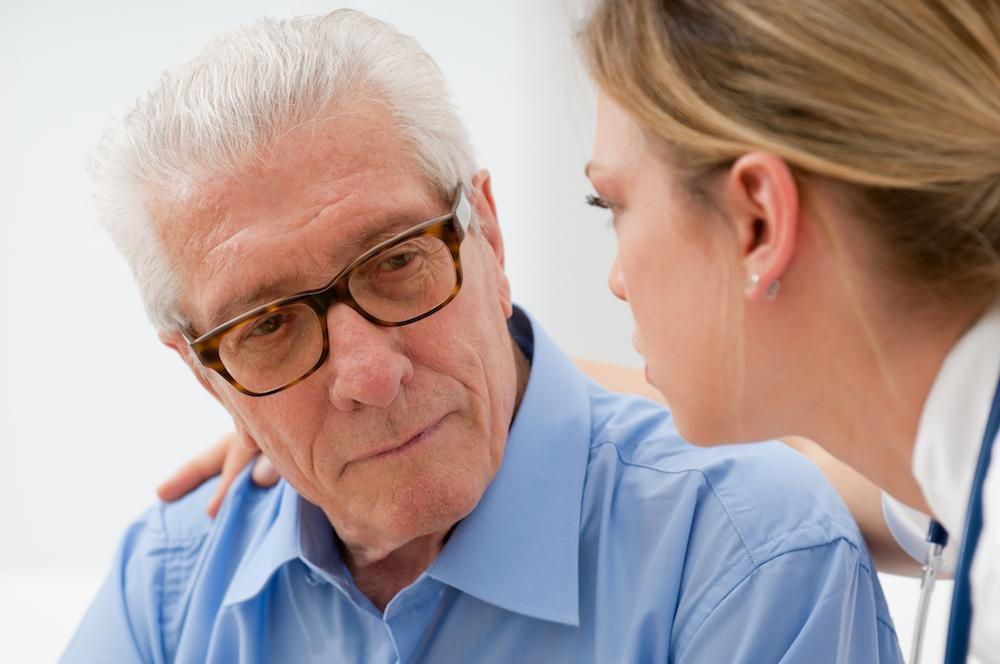
About one out of every 20 people suffer from hemorrhoids , and like a lot of other medical issues, they become more common as we get older. In fact, the National Institutes of Health says about half of all men and women over age 50 have hemorrhoids, making them a really common medical complaint among older people. A lot of people think rectal bleeding is the hallmark sign of hemorrhoids, but actually, many hemorrhoids don't cause bleeding. And sometimes, rectal bleeding can have other causes, like colorectal cancer. Because hemorrhoids are such a common medical complaint among both men and women, recognizing their symptoms can help ensure you get the right treatment at the right time.
Hemorrhoid symptoms: What to look for
Hemorrhoids are swollen blood vessels that form in your lower rectum, usually as a result of excess strain. This strain can be caused by constipation, hard bowel movements, pregnancy, or jobs or other activities that involve long periods of sitting or standing. Being overweight or obese can also increase the risk of developing hemorrhoids, since the extra weight around your torso increases the pressure on your lower belly and bowels. Internal hemorrhoids form inside your rectum, while external hemorrhoids form in the skin around your anus. Sometimes, a clot will form in the hemorrhoid area, causing what’s called a thrombosed hemorrhoid .
As noted, rectal bleeding can be a symptom of a hemorrhoid, but not all hemorrhoids bleed. When bleeding does occur, the blood will be bright red. Darker blood typically indicates a problem somewhere in your colon or small intestine. Since bleeding can also be a sign of rectal or colon cancer, it's always a good idea to have bleeding evaluated by one of our team to determine what's causing it.
Other signs of hemorrhoids include:
- Itching or burning around the anus
- Pain around your anus when sitting in specific positions
- Swelling around your anus
When external hemorrhoids are large, you might feel them protruding when you wipe after a bowel movement.
Treating painful hemorrhoids
Hemorrhoids can be treated in different ways, depending on where your hemorrhoids are located, their size and the symptoms you’re having. Some smaller hemorrhoids that cause only occasional, very mild symptoms might be treated with a few lifestyle changes. For instance, eating more fiber-rich foods and drinking plenty of water can help prevent constipation and straining during bowel movements, which means you’re less likely to have symptoms. Soaking in a tub or a shallow basin (called a sitz bath) of warm water can help reduce inflammation and irritation, and using moist wipes instead of dry toilet tissue can also help. And of course, over-the-counter ointments and prescription creams are designed to reduce both itching and swelling.
Sometimes, though, these home remedies don’t provide the long-term, meaningful relief you’re looking for. If that’s the case, hemorrhoid banding may help. In banding, a small elastic band is placed around the hemorrhoid, cutting off its blood supply. Within a few days to a week or so, the hemorrhoid tissue dies and drops off. The scar tissue it leaves behind forms a self-healing “seal.” Banding is a minimally-invasive procedure we can perform right in the office, usually using a local or topical anesthetic to numb the area first. Once your banding procedure is complete, you can go back to your regular routine. You may have some mild discomfort, but that will resolve once the hemorrhoid falls off.
Put an end to hemorrhoid pain
At Hawaii Gastroenterology Specialists, we know how uncomfortable hemorrhoids can be. Our team helps women and men relieve those painful symptoms with treatments based on their specific needs, including the type of hemorrhoids they have and the severity of their symptoms. If you’re having any of the symptoms listed above, we can determine if hemorrhoids are to blame, or if there’s another problem that needs to be treated. And if you already know you have hemorrhoids and their symptoms are becoming unbearable, we can help with that, too. In both situations, the key to relief is to schedule an evaluation so we can tailor a treatment just for you. To find out what’s causing your symptoms or to learn about hemorrhoid treatment options that can help you feel better, book an appointment online today.
